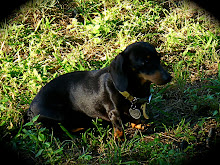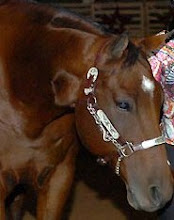Molecular biologist Dr Michael Denton, writing as an agnostic, concluded:
‘Alongside the level of ingenuity and complexity exhibited by the molecular machinery of life, even our most advanced [twentieth century technology appears] clumsy … . It would be an illusion to think that what we are aware of at present is any more than a fraction of the full extent of biological design. In practically every field of fundamental biological research ever-increasing levels of design and complexity are being revealed at an ever-accelerating rate.’3
The world-renowned crusader for Darwinism and atheism, Prof. Richard Dawkins, states:
‘We have seen that living things are too improbable and too beautifully “designed” to have come into existence by chance.’4
Thus, even the most ardent atheist concedes that design is all around us. To a Christian, the design we see all around us is totally consistent with the Bible’s explanation that God created all.
However, evolutionists like Dawkins reject the idea of a Designer. He comments (emphasis added):
‘All appearance to the contrary, the only watchmaker in nature is the blind forces of physics, albeit deployed in a very special way. A true watchmaker has foresight: he designs his cogs and springs, and plans their interconnections, with future purpose in his mind’s eye. Natural selection, the blind, unconscious, automatic process which Darwin discovered, and which we now know is the explanation for the existence and apparently purposeful form of all life, has no purpose in mind … . It has no mind … . It does not plan for the future … it is the blind watchmaker.’5
Selection and design
Life is built on information, contained in that molecule of heredity, DNA. Dawkins believes that natural selection6 and mutations (blind, purposeless copying mistakes in this DNA) together provide the mechanism for producing the vast amounts of information responsible for the design in living things.7
Natural selection is a logical process that can be observed. However, selection can only operate on the information already contained in genes—it does not produce new information.8 Actually, this is consistent with the Bible’s account of origins; God created distinct kinds of animals and plants, each to reproduce after its own kind.
One can observe great variation in a kind, and see the results of natural selection. For instance, dingoes, wolves, and coyotes have developed over time as a result of natural selection operating on the information in the genes of the wolf/dog kind.
But no new information was produced—these varieties have resulted from rearrangement, and sorting out, of the information in the original dog kind. One kind has never been observed to change into a totally different kind with new information that previously did not exist!
Without a way to increase information, natural selection will not work as a mechanism for evolution. Evolutionists agree with this, but they believe that mutations somehow provide the new information for natural selection to act upon.
skip to main |
skip to sidebar






Awarded by Kat

Search This Blog
About Me

- Mac and Kat
- Kat~ Hey Everyone! I have created this blog along(Got Jesus) with my cousin to share my discoveries I have found while seeking out the truth in the scriptures. More than anything I want to live my life for Jesus and in everything I do strive to do it with excellence to please Him. My goal is to have my name written in the Book of Life that God holds. We must always be ready to defend and give answers concering our faith to bring others to Him. Above all I want to apply what I find to my life!!! Thanks for looking at my blog!!! Mac- I am a Christian, seeking to find the Will of God everyday. I hope that I will be able to share my faith to everyone who visits our blog, while growing as well. I dedicated my life to Christ four years ago. I love being outside! I have the greatest parents! and lots of siblings that God has blessed me with! Psalm 19:14-14 May the words of my mouth and the meditation of my heart be pleasing in your sight, O LORD, my Rock and my Redeemer.
1 Peter 3:15-16
But in your hearts set apart Christ as Lord. Always be prepared to give an answer to everyone who asks you to give the reason for the hope that you have. But do this with gentleness and respect, keeping a clear conscience, so that those who speak maliciously against you good behavior in Christ may be ashamed of their slander.
Our Favorite Links
Mac's dogs Butterscotch and Coco

Mac's dog Coco


Mac's Butterfly
Awards

Awarded by Kat
No comments:
Post a Comment
Thank you so much for posting on our blog! We have the comment moderation up. which means all posts will have to go past our parents before they are seen. Thanks again!